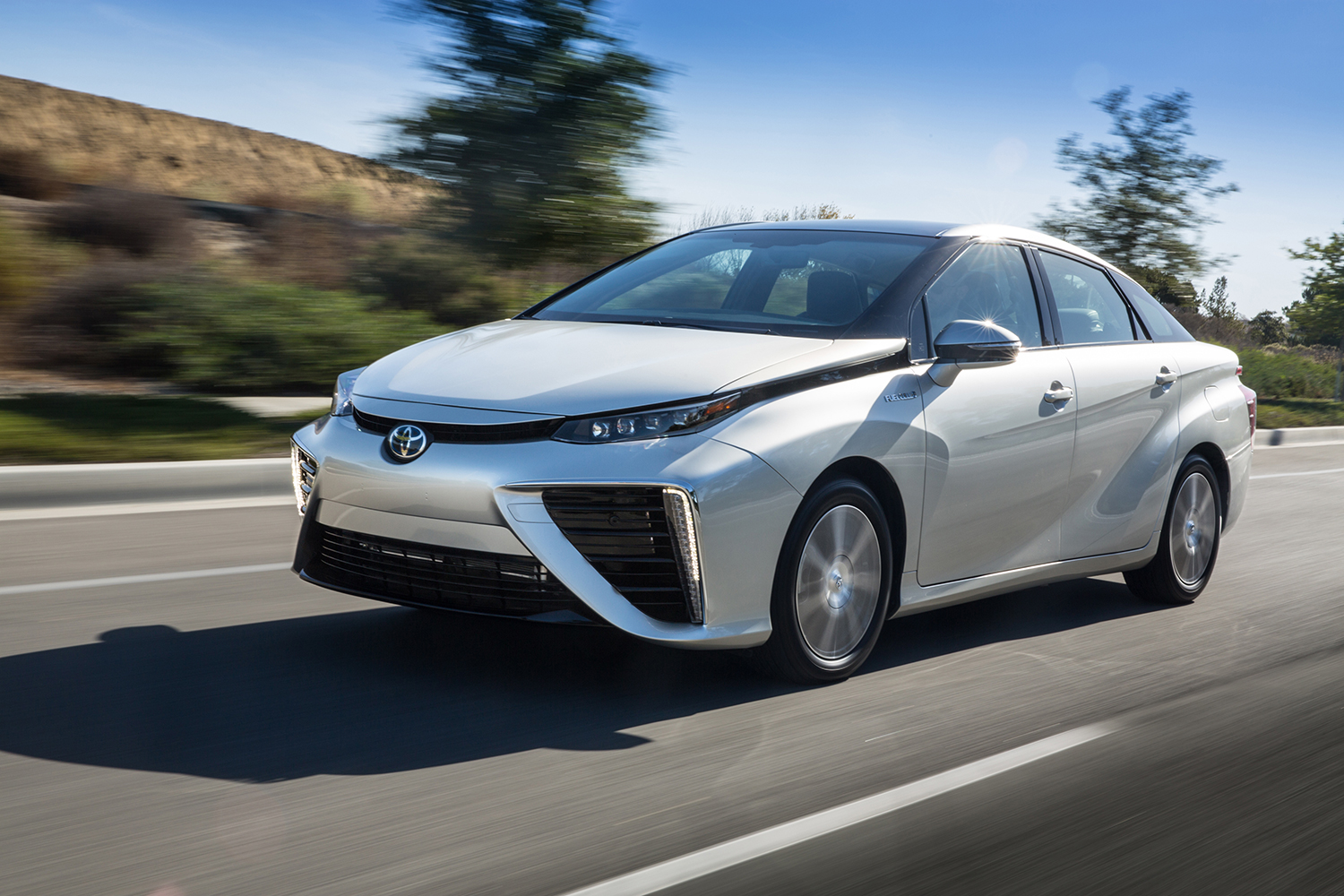
Despite low sales owing to the slow rollout of hydrogen infrastructure, the Toyota Mirai fuel cell car isn’t going away. A next-generation Mirai will bow in 2020, Toyota chairman Takeshi Uchiyamada said at a hydrogen conference in Tokyo, according to Automotive News Europe.
The current-generation Mirai first appeared in 2014, so it’s about time for a new version. The Mirai was the first modern hydrogen fuel cell car intended to be sold in large numbers, but infrastructure hasn’t caught up to Toyota’s ambitious plans. With so few places to fill up with hydrogen, United States sales are currently limited to California. Toyota sold just 1,700 cars in the U.S. last year.
Another issue with the Mirai and other current fuel cell cars is cost. The Mirai starts at $59,455, a steep price for what is, aside from the high-tech fuel cell powertrain, an ordinary Toyota sedan. While it was intended to take hydrogen to the masses, the Mirai is built in a small batch fashion that doesn’t allow it to take advantage of economies of scale. The car is built in the Japanese factory that previously made the Lexus LFA supercar, partly because the factory was equipped to work with carbon fiber. Instead of making body panels for a high-end Lexus, the plant now makes carbon fiber hydrogen tanks for the Mirai.
Toyota does expect the price of fuel cell vehicles to go down. Prices should match hybrid cars within 10 years, Matt Harrison, Toyota’s head of European sales and marketing, told Automotive News Europe earlier this year. But that means price parity won’t be achieved until the third-generation Mirai launches, Harrison said, so the second-generation model launching in 2020 will likely be another costly, low volume vehicle.
Two other automakers currently sell hydrogen cars in the U.S., and they’ve experienced similar problems to Toyota. Honda and Hyundai only sell their fuel cell vehicles in California due to lack of fueling infrastructure elsewhere, and both models carry a significant price premium over controversial internal combustion models or hybrids. That didn’t stop Hyundai from replacing its Tucson Fuel Cell with a new design called the Nexo, though.
Toyota’s interest in hydrogen fuel cells goes way beyond passenger cars. The automaker has deployed a fleet of fuel cell semi-trucks in California, and will use fuel cell buses at the 2020 Tokyo Olympics. Toyota is also using fuel cells to power a factory, and is even developing a hydrogen lunar rover.
Editors' Recommendations
- Hyundai bets big on hydrogen from sewage, plastic
- Waymo’s next-gen self-driving tech can see what’s happening 500 meters ahead
- Hyundai cracks off two new land speed records in fuel cell, hybrid cars
- Toyota’s E-volution continues with 2021 Mirai and 2021 RAV4 Plugin
- Toyota uses hydrogen fuel cells to power one of its Japanese factories


